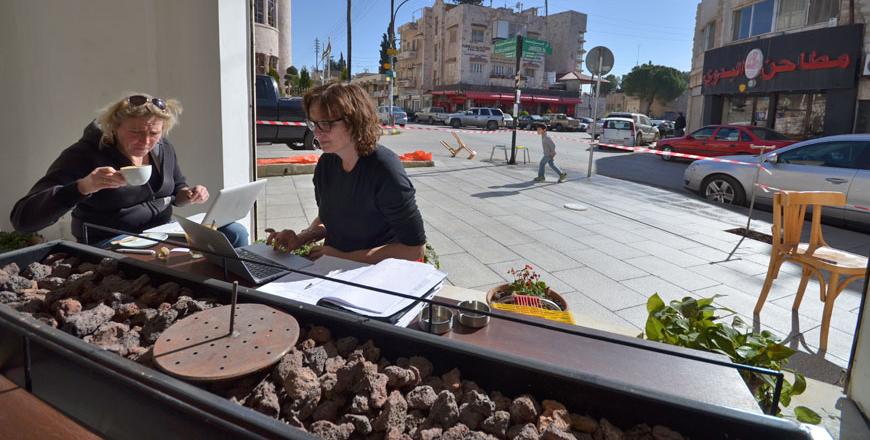You are here
Local grocery owners bemoan tax hike
By Muath Freij - Jan 23,2018 - Last updated at Jan 23,2018
AMMAN — Abed Yaghmour’s father opened his grocery store in downtown Amman’s Prince Mohammad Street, formerly known as Wadi Al Seer Street, during the 1960s, quickly becoming one of the main sought-after groceries for local residents.
Abed inherited the grocery, aiming to perpetuate the flourishing business. However, the economic environment changed radically, turning the small grocery into just a place where he meets his friends.
“I have seriously been thinking about closing this store down five years ago, but its affordable rental fees made me continue the business. The grocery business is dying because prices of many commodities are expected to rise soon,” he told The Jordan Times over the phone.
Abed is one of several grocery owners who voiced their pessimism and concern over the government's decision to raise special tax on a number of commodities.
The government recently raised the special tax on carbonated drinks from 10 to 20 per cent, and on Octane 95 and 98 gasoline to 30 per cent, while JD0.20 has been added on cigarette packets. Meanwhile, all sales tax exemptions (zero and 4 per cent) have been modified at a unified rate of 10 per cent.
The reduced taxes on essential commodities remained unchanged, including sugar, rice, flour, cooking oil, lamb, beef, chicken, fish, fresh milk, children’s milk, eggs, tea, school stationery, pesticides, fertilisers and veterinary medicines, in addition to equipment used by people with disability for mobility and orthopaedic devices.
Khaled Hammad, a supermarket owner in Jabal Luweibdeh, said people’s spendings will definitely decline following the recent decisions.
“People are heading to the shopping malls because they provide offers better than groceries. The recent steps will encourage people to get more attached to malls and our business will be negatively affected. After 10 years, these small stores will completely vanish,” he added.
Asem Abed Albaqi, a longtime resident of Jabal Luweibdeh, said he never turned to these small groceries because shopping centres provide customers with encouraging prices.
“The recent raise will not affect our spending as we will continue to buy the commodities we are used to purchasing, but our financial situation will suffer a lot,” he added.
Eyad Mikhamer, a grocery owner in Bayader area, said the government should have coordinated with representatives of foodstuff shops before enforcing such taxes.
“Around 10 per cent of the groceries closed down and I am sure the rest will close soon. For one year, the business scene has not boomed at all. Spending of people declined and now it will be buried,” he added.
Sari Alkhalil, a private sector employee, said people will definitely think twice before spending from now on.
“The problem is that prices are on the rise and people’s salaries do not witness any kind of increase. When the spending scene in Jordan gets slower, investors will be reluctant to invest in the country,” he added.
Abed said that, although prices might be higher, it will not have a negative impact on shopping malls as they always conduct promotions that attract a great number of people.
“When someone needs a specific commodity late in the evening, he simply heads to the nearby grocery. This is our only task now,” he said.
Related Articles
AMMAN — Several major factors are continuing to hinder the local apparel sector, preventing the summer sales bump typical of the sector, sta
AMMAN — Consumer footfall at shopping malls has picked up early this month, boosting in-store sales, according to apparel sector operators.“
AMMAN — Zaki Ammareen, a lifelong resident of Jabal Luweibdeh, says he no longer feels the "nice and calm" atmosphere he used to enjoy in th


















